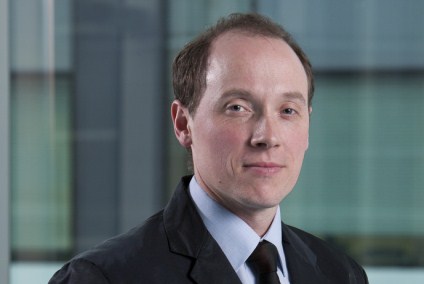Stephen Pollard, Group Director for Management Consulting at Arup, describes 2016 as a very good year. “We grew in income, headcount and in the breadth of services we offer. Of course, it was a challenging year for any consulting firm, with the uncertainties surrounding the Referendum. Nevertheless, we saw significant growth in work for clients in energy, transport, water and in our major city projects.” Stephen is also cautiously positive about 2017.
Given Arup’s pedigree in infrastructure, clients typically ask Stephen’s advisory team for help in understanding what assets to invest in and how to ensure those assets deliver quality outcomes. “We provide strategic planning advice, specialised support on infrastructure financing, as well as assistance on more transactional matters. Our traditional consulting skills are combined with deep technical expertise. For example, a city transport authority may want to enhance its metro system. We can help design integrated approaches. These could allow the client to capture its land value and fulfil its ambitions more cheaply.
“One major advantage we have as an advisory business is in the transferability of our insights. We can apply learning garnered for instance in one aviation project to other similar assignments – or even, where relevant, to other sectors with similar needs. This is true of our work in rail or health, where our understanding of issues such as risk management may be widely relevant and applicable.”
Arup has embraced technological disruption, both how it a affects client requirements and how it is changing the business of consulting itself. “We aim to remain a global business leader for digital. We have restructured and invested heavily to ensure that everything we do is optimally digitised. This is essential. Client need is changing. In the past, an airport might have asked us to help them build a carpark. Now, they will give us data on the movement and usage patterns of their customers. They will ask us to interpret it for them and suggest strategic options. These may or may not include building a carpark.
“Technology now saturates the physical environment. Asset value can now be better understood and interpreted through technologies and the data they generate. These dynamics allow us to have quite different conversations with clients. We can use data to challenge them and encourage them to seek new markets. The markets themselves might even be data related. Citymapper have deployed transport operators’ data to create a new product. Other, larger players may look for similar opportunities.”
There is technological change in the process of consulting too – although Stephen notes that in Arup’s wider world, this is nothing new. “There are plenty of opportunities for automating our services. The potential of information models and visualisation tools, such as BIM, has been understood for a long time. We certainly want to go still further and innovate more. Certain aspects of automation are already proven business models, commonplaces of enterprise architecture. However, we face impediments in accelerating their deployment in other business contexts. Some of the blockers are regulatory issues. To address this, we are working with clients and other partners who are genuine disruptors in these fields.”
Arup’s approach to securing and managing talent stems in part from its MCA Consulting Excellence Award-winning commitment to ethics. “That is deep in our culture. We are an employee-owned business, committed to making a difference. The ethical dimension combines with and reinforces our intellectual traditions. We have always recruited technically minded, capable people who want to solve deep problems.
“Increasingly, those business challenges in our markets are at the interface between computational science and engineering. So, there are teams in Arup leading the development of the new integrated solutions we require. To support them, we are bringing in more people with relevant skills. After all, despite our proven engineering heritage and early adoption of digital, the danger for us is that technological change accelerates so fast that we are superseded by new capabilities and techniques. So, our overall people strategy, which is to have a substantial pool of innovative thinking under our own roof, is owned by and driven from the top of the organisation.
“We need data scientists who understand engineering challenges. We’re bringing them in and training our existing staff in relevant techniques. We are also developing a new, integrated operating group. This combines advanced engineering, mathematical and digital advisory skills. These will be deployed to create new advisory products and tools.
“These approaches are already bearing fruit. Take the monitoring of piling being put into a construction site. We have invented a tool which can reduce the time taken to do this by a factor of ten.”
Developments in Arup’s human and technical capabilities should also allow the firm to operate more effectively across the infrastructure value chain and also improve how that value chain operates. “We work with clients at different points across the design, build, operate and renew lifecycle. Our most leading-edge clients are looking at integrated approaches to that lifecycle. We are working with them to eradicate weaknesses at the various ‘handover’ points. For example, the transitions from build to operate are frequently inefficient. We have the knowhow to manage that interface better.
“Arup’s principle of ‘Total Design’ is continuing to evolve and expand to give our clients a holistic solution to their challenges and opportunities, helping them to shape a better world.”

